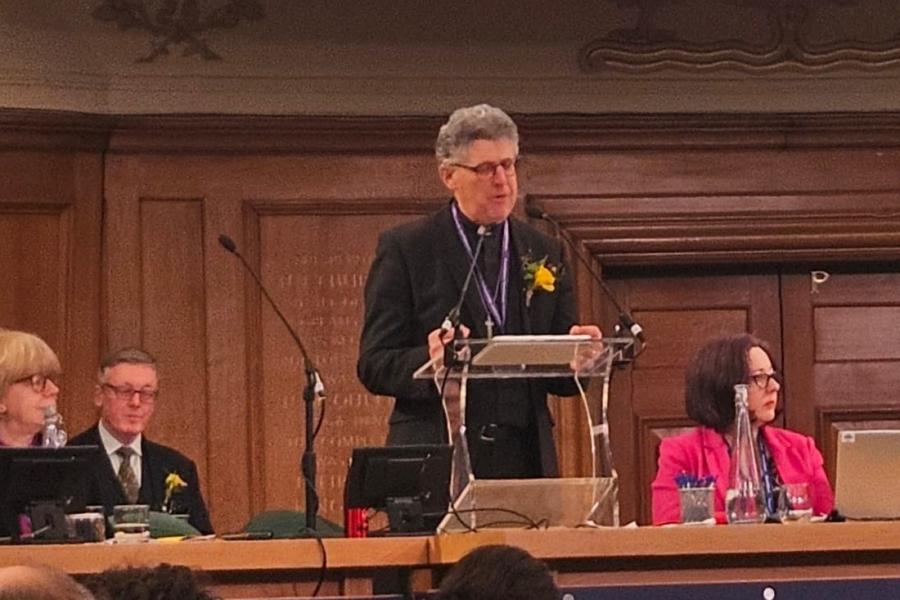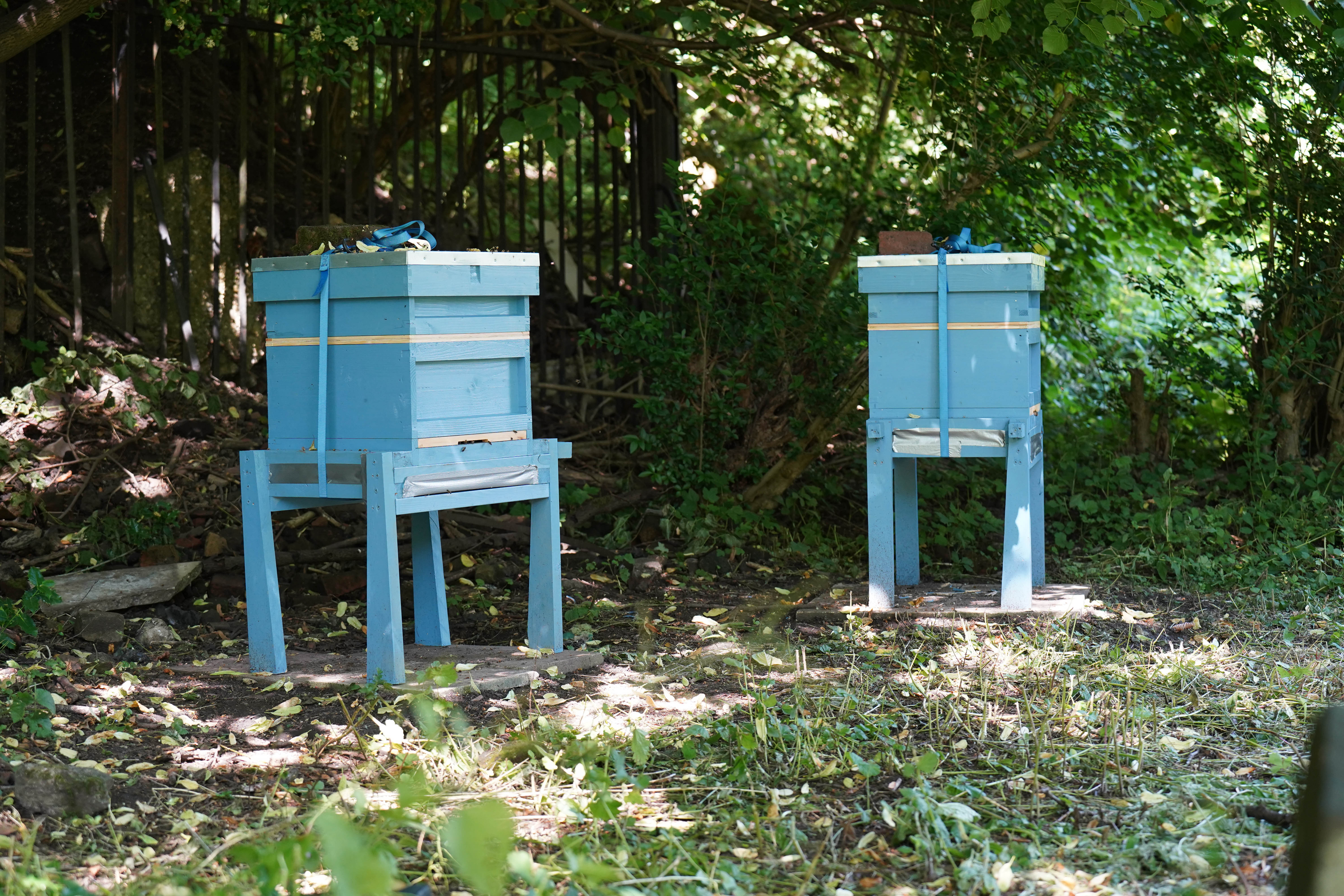 Christ Church in Coseley, in the far north of the Diocese, has recently installed two bee hives in their churchyard, which they hope will help them engage with the local community as well as provide them with honey which can be sold to raise funds for the church!
Christ Church in Coseley, in the far north of the Diocese, has recently installed two bee hives in their churchyard, which they hope will help them engage with the local community as well as provide them with honey which can be sold to raise funds for the church!
The hives were the idea of Keith Ball, who had spoken to a beekeeper who kept a hive in his in-law’s garden and wondered if it was something the church could do.
Keith said: “I am a relative newcomer to church. I began attending through bellringing, was confirmed last October, am on the PCC and was looking for ways in which I could get more involved. We had already been talking about how we might turn our large graveyard into a meadow to support local wildlife so introducing bees seemed like something else we might be able to do.”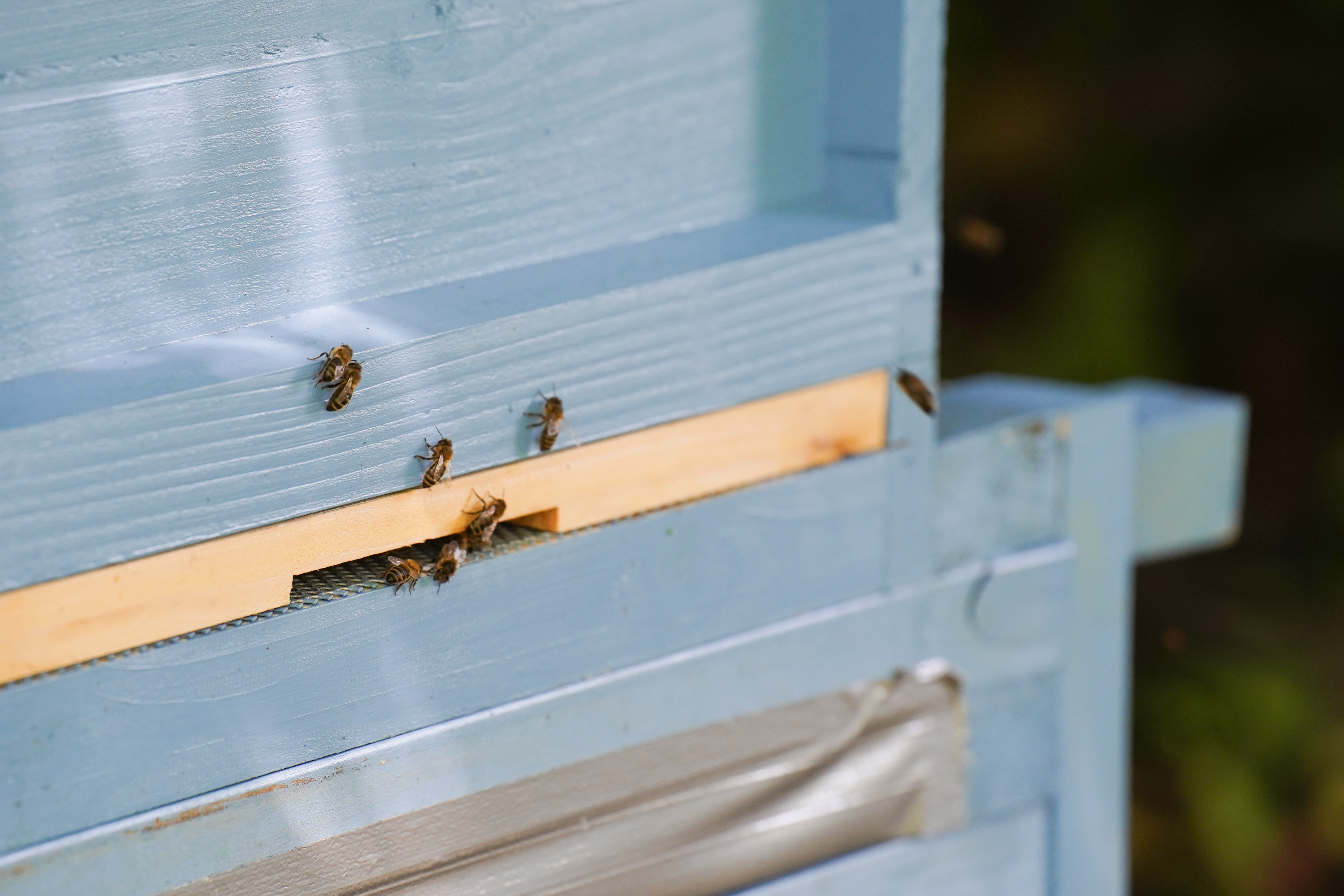
Keith spoke to the vicar Emma Stanford and began exploring what might be possible. He joined the local Beekeeping Association who were a great source of expertise and went on a 4-5 month course to understand was involved. There were also discussions with the PCC, Archdeacon and diocesan Church Buildings Officer, Mark Carter.
“We invited some local beekeepers to come to advise us on the most suitable location and researched the kind of bees to keep,” said Keith. “We really wanted to have indigenous bees and a beekeeper in Sedgley was able to provide us with tw o hives and two nuclei of bees which would then grow into a full hive.”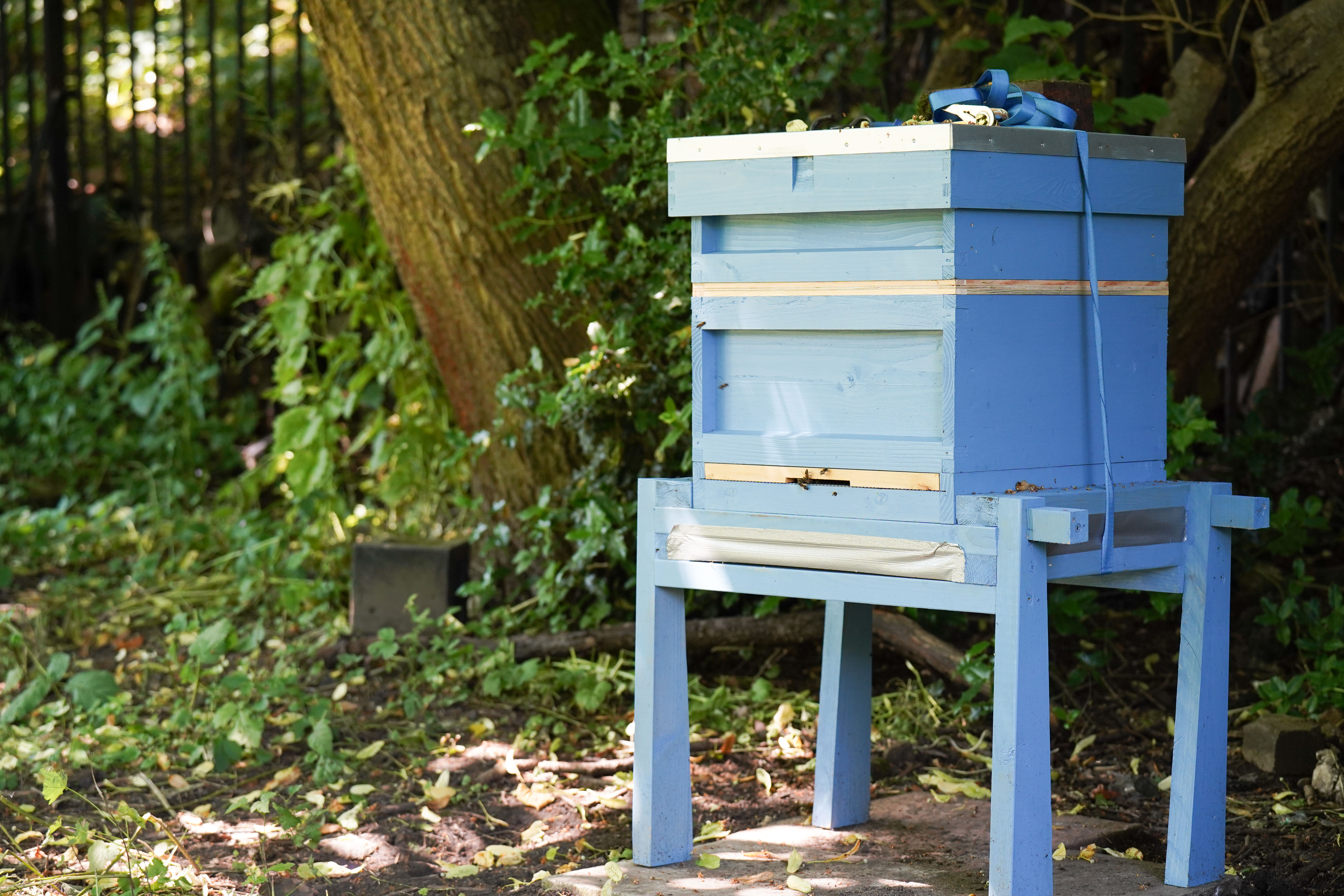
The bees arrived in July and there is a group of people who do weekly inspections of the hives. An extension has already needed to be added to one of the hives because there are so many bees and Christ Church hopes to double the hives they’ve got next year, perhaps even putting one outside St Mary’s, which is the other church in their parish.
“There are strong links between the church and bees,” said Keith. “Alongside producing our own honey to sell at church fayres, we also hope that we’ll be able to make paschal candles for ourselves and other local churches.”
The bees have already caused quite a stir in the local community. “It’s a great conversation starter!” Said Emma. “Wherever I go now, people ask me how the bees are doing! Our local school is keen for their eco group to get involved and we’re looking to build this into their curriculum. It’s been a great way to raise the profile of the church and show that we are active and still there for the local community.”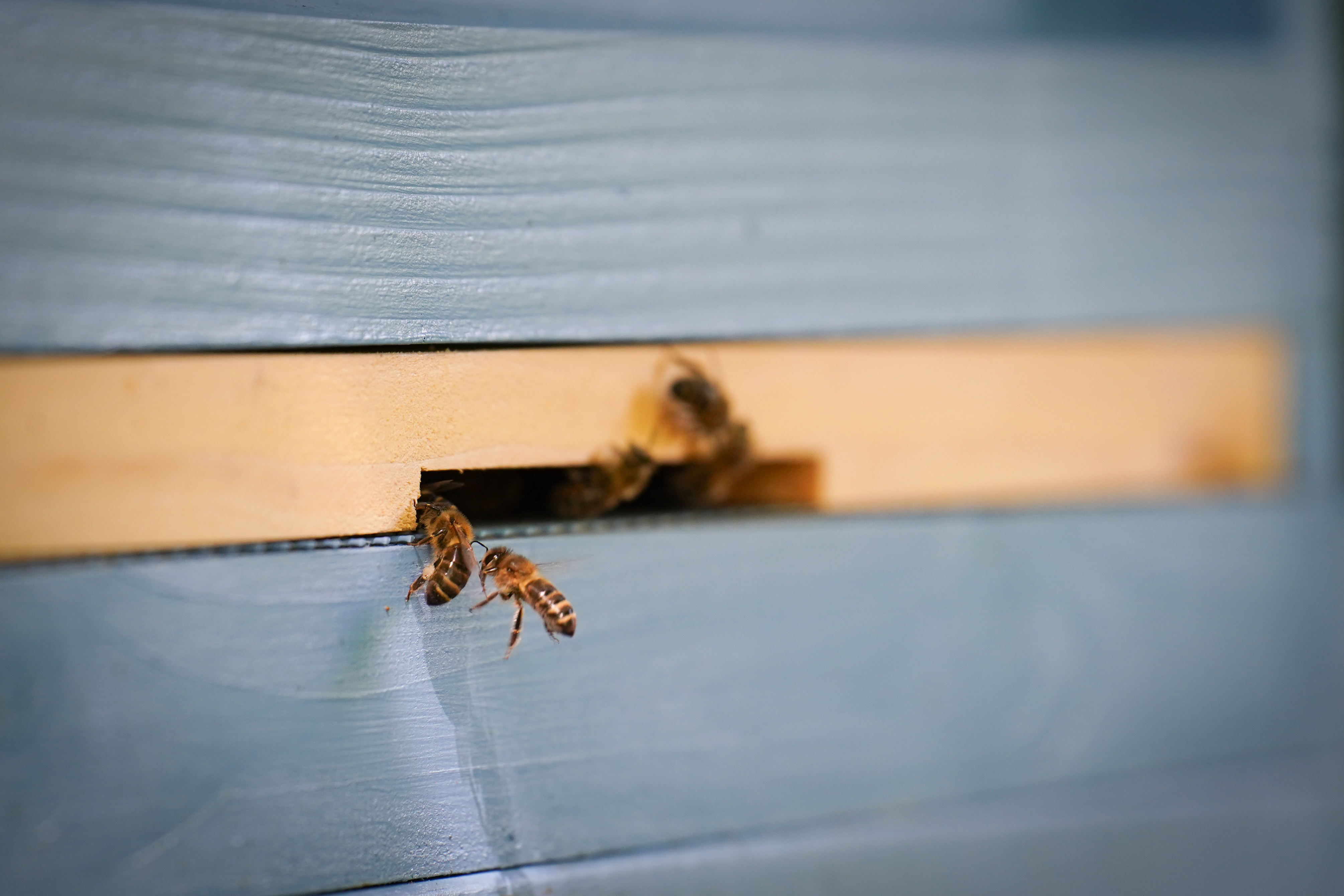
Keith and Emma are happy to talk to other churches about their experiences and would encourage others to think about hosting hives. “Bees need our help, and churches have lots of places they can put hives. There are lots of associations out there and they would be delighted to hear from new people wanting to get involved,” said Keith.

